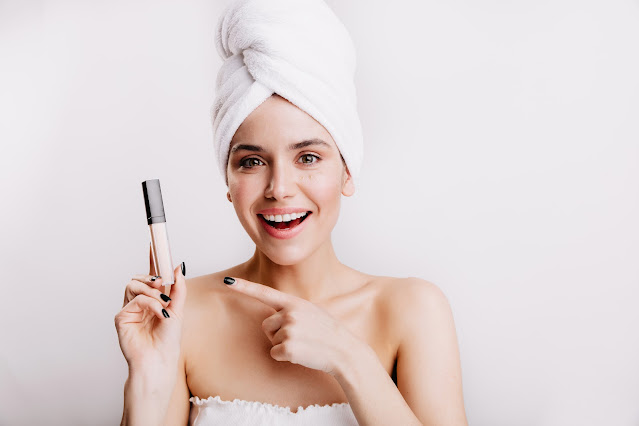Featured
5 Hair Product Ingredients to Avoid for Oily Hair
Oily hair can be a challenging problem to manage, and it can be tough to find the right hair care products that work for you. While many factors contribute to oily hair, the ingredients in the hair care products we use play a significant role.
In this blog post, we'll dive deeper into the ingredients you should avoid in your hair care products if you have oily hair. We'll also discuss some tips and tricks to help manage oily hair effectively.
1. Silicones: Why You Should Avoid Them
Silicones are a type of synthetic polymer commonly used in hair care products like shampoos, conditioners, and styling products. They are known for their ability to smooth hair, add shine, and improve texture. However, silicones can also be problematic for individuals with oily hair.
Silicones are not water-soluble and can build up on the scalp and hair, clogging pores and trapping oil and dirt. This can lead to an itchy, flaky scalp and an increase in oil production. If you have oily hair, look for silicone-free or water-soluble silicone products.
Some examples of water-soluble silicones include:
- Dimethicone copolyol
- Lauryl methicone copolyol
- Hydroxypropyl polysiloxane
2. Sulfates: Why You Should Avoid Them
Sulfates are a type of surfactant commonly used in shampoos to create a lather. They work by emulsifying oil and dirt, allowing them to be easily washed away. However, sulfates can also strip the scalp of its natural oils, leading to increased oil production.
If you have oily hair, look for sulfate-free or mild, sulfate-free surfactant shampoos. Sulfate-free shampoos are gentler on the scalp and can help to maintain a healthy oil balance. Some examples of sulfate-free surfactants include:
- Sodium lauroyl sarcosinate
- Sodium cocoyl isethionate
- Decyl glucoside
3. Heavy Oils: Why You Should Avoid Them
While some oils can be beneficial for the hair and scalp, heavy oils like coconut oil, olive oil, and castor oil can be too heavy for individuals with oily hair. These oils can coat the hair shaft, weighing it down and making it look greasy.
If you have oily hair, look for lightweight oils like argan oil or jojoba oil, which can help to moisturize the hair without weighing it down. These oils are also rich in vitamins and antioxidants that can help to nourish and strengthen the hair.
4. Alcohol: Why You Should Avoid It
Alcohol is commonly found in hair care products, as it helps to dissolve other ingredients and create a lightweight, airy texture. However, alcohol can also be drying to the hair and scalp, leading to increased oil production.
If you have oily hair, look for alcohol-free or low-alcohol content products. Some examples of low-alcohol content ingredients include:
- Cetearyl alcohol
- Behenyl alcohol
- Stearyl alcohol
5. Fragrances: Why You Should Avoid Them
Fragrances are often used in hair care products to mask unpleasant odors and create a pleasant scent. However, fragrances can be a source of irritation for individuals with sensitive scalps, leading to inflammation and increased oil production.
If you have oily hair, look for fragrance-free or natural, plant-based fragrance products. These products are less likely to cause irritation and can help to keep your scalp healthy and balanced.
Tips and Tricks for Managing Oily Hair
In addition to avoiding certain ingredients, there are several tips and tricks you can use to manage oily hair effectively:
- Wash your hair regularly: While washing your hair too often can strip your scalp of its natural oils, not washing it enough can lead to an accumulation of oil and dirt. If you have oily hair, aim to wash it every other day to keep it clean and fresh.
- Use dry shampoo: Dry shampoo is a powder or spray that absorbs excess oil and adds volume to the hair. It's a great option for in-between washes and can help to extend the time between washes.
- Avoid over-brushing: Brushing your hair too often can stimulate the scalp, leading to an increase in oil production. Instead, try to limit brushing to once or twice a day.
- Choose the right styling products: Look for lightweight styling products that won't weigh your hair down or make it look greasy. Avoid heavy waxes and gels, which can be difficult to wash out and can leave a residue on your hair.
- Adjust your diet: Your diet can also play a role in the health of your hair. Aim to eat a balanced diet rich in vitamins and minerals, and avoid excess sugar and processed foods.
In conclusion, managing oily hair can be a challenging task, but by avoiding certain ingredients and following the tips and tricks outlined in this blog post, you can help keep your hair healthy and balanced. Remember to be patient and persistent in your efforts, and don't be afraid to experiment with different products and techniques until you find what works best for you.
- Get link
- X
- Other Apps
Popular Posts

5 Best Concealer Dupes: Affordable Alternatives to High-End Brands
- Get link
- X
- Other Apps

5 Best and Affordable Makeup Setting Powders for Dry Skin
- Get link
- X
- Other Apps

Comments
Post a Comment